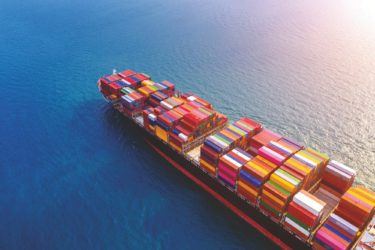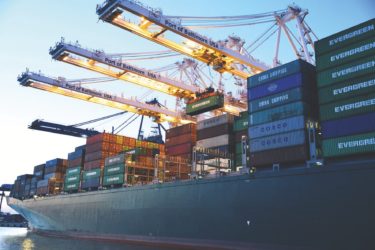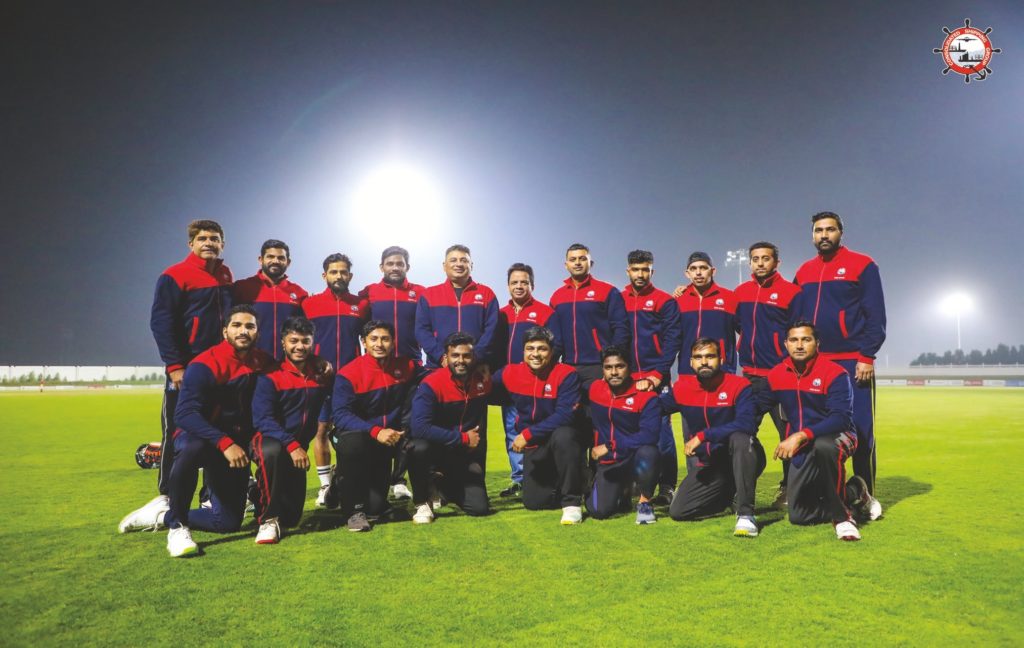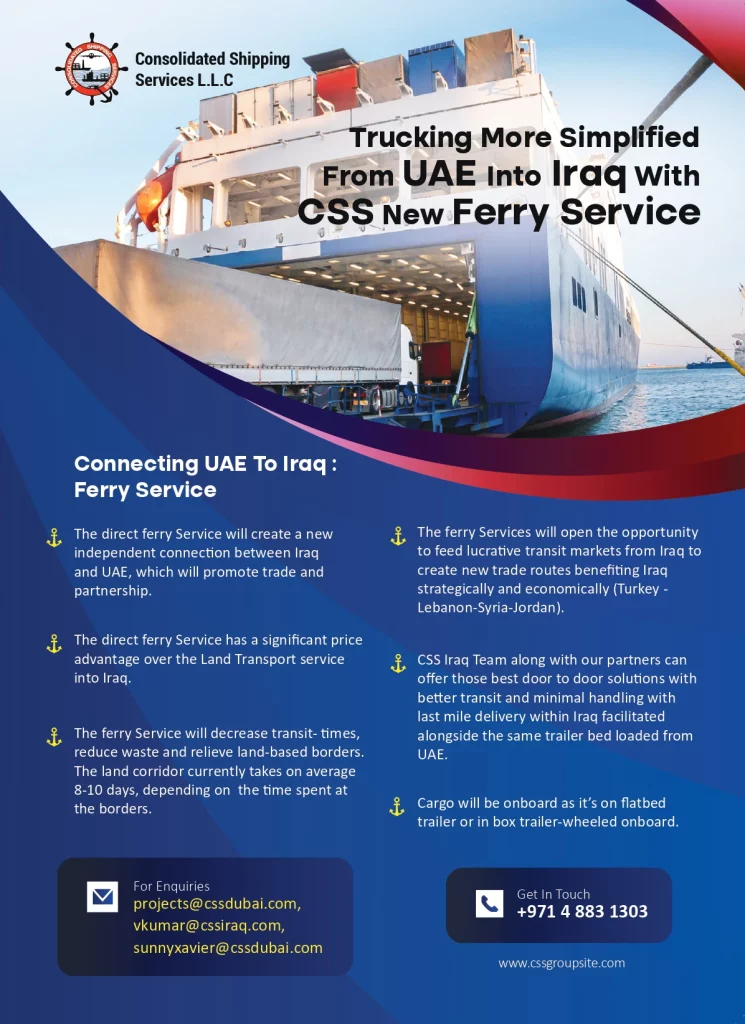2M GLOBAL SHIPPING ALLIANCE : COMING TO AN END

Maersk and MSC are ending the 2M global shipping alliance. The pact will conclude in 2025. A.P. Moeller-Maersk and Mediterranean Shipping Co., the creators of the 2M alliance, are ranked the world’s two largest shipping lines. They would end their vessel-sharing partnership as the industry faces reduced demand and lower freight rates.
2M Global Shipping Alliance
- 2M is a container shipping line vessel-sharing agreement (VSA)
- It was introduced in 2015 by Maersk and MSC with the aim of ensuring competitive and cost-efficient operations in the Asia-Europe, Transatlantic, and Transpacific trades.
- The 2M agreement has a minimum term of 10 years with a 2-year notice period of termination.
Reasons for the End of the Alliance
The decision to wind down the 2M alliance comes as shipowners are dealing with
- A drop in cargo and excess vessel capacity has pushed freight rates to pre-pandemic levels. According to operators and charterers, container volumes across the Pacific are down about 30% in January compared with last year.
- Shift of balance of power back to customers of these alliances. Customers had complained to regulators the
alliances were anti-competitive. Big cargo owners such as Amazon.com Inc. and Target Corp. are securing ocean freight rates about one-third less than last year’s contracts. - Retailers not securing a spot-on vessel: Retailers that import large volumes of goods typically sign fixed-term
contracts with ocean shippers to avoid uncertainty in deliveries, and they are not doing this anymore. Some importers are now opting to pay market rates instead of securing fixed-term contracts. - Changes in the retail scenario: Retailers have scaled back imports. The sales during the holiday season have become weak. Apart from this, they have to deal with bloated inventories.
- Return of pre-pandemic days: Ocean freight has normalized, and the ports have normalized. Most in-transit issues and all the penalties have also been reduced. The retailer’s chief operating officer, John Mulligan, of Target, said in November that container rates had come down by one-third and that they would come down further.
- Looming uncertainties: The uncertainty has cut down the duration of fixed-rate contracts. Shipowners are offering from one year to as short as three months contracts. Pricing will be under pressure for shipowners this year, while cargo owners are getting discounted rates.
“It’s very unpredictable for our customers and us,” Maersk CEO Vincent Clerc said in a December interview. “We made significant capacity adjustments, but the inventory corrections can take a few months.

Future of the Alliance Partners
The 2M alliance had established a behemoth in the industry when it was created in 2015. Maersk and MSC can each independently move over 4 million TEUs through a combination of owned and chartered ships, according to Alphaliner data. 2M was instrumental in stabilizing the fragmented container market.
Following the creation of 2M, similar partnerships were formed- the Ocean Alliance and THE Alliance. The three groups account for about 75% of global container – shipping capacity, according to data company Statista. The winding down of 2M has raised questions about the future of the other two alliances.
As for Maersk and MSC, terminating the agreement will allow both companies to continue to pursue their strategies. Maersk has been focusing on becoming an end-to-end logistics operator with an emphasis on inland supply services, while MSC has overtaken Maersk in the number of ships it operates, sharply building up its fleet. MSC now has the scale to service all its customers on its own.
“Even if 2M formally runs until January 2025, it should be expected that Maersk’s and MSC’s networks on the alliance trades will begin to deviate even more in 2023,” said Lars Jensen, CEO of Denmark-based Vespucci Maritime.
In a joint statement, CEO Vincent Clerc of A. P. Moller – Maersk and CEO Soren Toft of MSC said: “MSC and Maersk recognize that much has changed since the two companies signed the 10-year agreement in 2015. Discontinuing the 2M alliance paves the way for both companies to continue to pursue their individual strategies. The companies acknowledged the commercial environment that led to the union in 2015 has changed — particularly as the carriers pursue new strategies.
Their alliance, however had defined the market for nearly a decade.
CSS GROUP REGISTER COME BACK EMERGING CHAMPIONS
CSS Group once a Champion name in UAE domestic cricket arena, come back emerging Champions at the recently concluded JMR Sporting Emerald Cup Season 9.After a long vacation from the tournaments, CSS Group decides to recapture its glittering glory, and this start winning a Championship is encouraging for all.

Played at Sharjah, the finals were between Consolidated Shipping Services CSS v/s Oasis Cricket Club OCC, and the former lifting the title at the end of a thrilling finale with a margin of 20 runs. Winning the toss and elected to bat first, CSS scored 193 for the loss of 8 wickets in this 20 overs limited tournament, and restricted OCC at 173 for 8, exhibiting a comprehensive team display.

CSS remained unbeaten all through the tournament where the team played a total of 7 matches, winning 6 matches and 1 match was cancelled, with points shared.
Bring your brand to UAE with CSS eLogix solutions

- First mile solutions for importing to UAE
- Product registration solutions in Dubai Municipality and health.
- Ambient, chiller and freezer warehouse storage solutions
- State-of-the-art warehousing and ERP
- Omni-channel B2B and B2C sales.
- Temperature controlled delivery options with next day, same day and bullet service options.
- IOR /EOR Service options.

- Location-We are centrally located and easily connected with options for extended cut-off times.
- Time Management- Automated fulfillment solutions with optimal real time inventory management
- Business growth-Enhance your business and sales through our fulfillment promises.
BOUNCED CHEQUES AND THE LATEST AMENDMENTS IN THE UAE
The new amendment to Federal Law No. 18 of UAE’s Commercial Transactions Law, 1993, regarding the decriminalization of bounced cheques and the partial payment of cheques, took effect from January 2, 2022, as per the directive of the UAE Central Bank. These changes align with the practice in countries such as France and the USA. Being a criminal offense before the amendment, the modifications have been enacted to make it a civil offense where people can discuss and settle the case amicably.
 Cheques returned due to insufficient funds ha been decriminalized to a large extent, and criminal liability will only accrue in cases where the cheque has been issued for an illegal purpose, bounced as a result of being delivered in bad faith, or as a result of fraud or forgery, or has been deliberately written or signed in a way that makes them untenable. It may also accrue criminal liability if proven that:
Cheques returned due to insufficient funds ha been decriminalized to a large extent, and criminal liability will only accrue in cases where the cheque has been issued for an illegal purpose, bounced as a result of being delivered in bad faith, or as a result of fraud or forgery, or has been deliberately written or signed in a way that makes them untenable. It may also accrue criminal liability if proven that:
1. The drawer had ordered the bank not to cash the cheque before the due date;
2. The drawer had closed the account or withdrawn the available balance before the due date.
Moreover, the previous beneficiaries of bounced cheques must notify a police station regarding the situation, providing details of the drawer, drawee, the cheque, and the bank where it was to be cashed. Before visiting a police station, the complainant should first ascertain in which area of the city the cheque was first submitted for clearing, as it is the police station in the corresponding area where the cheque was first submitted that shall have jurisdiction over the complaint.
Once the complaint is accepted, after review of the original cheque along with the return memo and other relevant documents, the cheque issuer, or the counterparty, in this case, will be notified by the police to come to the station for questioning. Once the police record the statements of all parties involved, they will prepare their report, and the complaint will be transferred to the Public Prosecution. The Public Prosecution has exclusive jurisdiction to initiate and prosecute criminal proceedings under AED 200,000/- by issuing a fine only. For cheque amounts over AED 200,000/-, the Public Prosecution will have to transfer the case to the criminal court for their review. If the amount is less than AED 200,000/-, then the case would be transferred to a civil court that could force him to pay the amount mentioned in the cheque along with a fine. At this point, the courts would determine whether or not an element of bad faith existed.
On the contrary, the new amendment enables the beneficiary to directly approach the court’s execution judge, after obtaining a certificate from the bank, to order payment of the full or partial payment of the cheque’s value or even enforce the right to seize the drawer’s assets, in an accelerated and easy procedure that preserves the rights of all parties involved. To that extent, partial payment of cheques has also been made mandatory, with the bank required to pay the drawee the partial amount if the amount in the account is less than the value mentioned in the cheque unless the drawee rejects such payment. In such cases, the bank shall follow the protocols for partial payment of Cheque value, as stipulated in the new amendment law.
As part of the changes, administrative penalties for issuing cheques without funds will also be toughened, including withdrawal of checkbooks from the transgressor, denying them the right to receive new checkbooks for a maximum of five years, and suspending their professional or commercial activity.
This move to amend the Commercial Transactions Law that decriminalizes bounced cheque cases are expected to come as a huge relief to hundreds of businesses that earlier had to pay hefty fines at risk of imprisonment without trial in the UAE.
UAE TRADERS OPT FOR FOODSTUFF FROM OTHER COUNTRIES TO MAKE UP FOR UKRAINE SHIPMENTS
The Russia-Ukraine conflict has paralyzed not just Ukraine but also many countries. Food supply constraint is a major concern for most of them. Wheat, a key commodity, has seen a sudden surge in its price as Ukraine has been its major exporter. All shipments have been barred, with the strife between the two nations still raging on. UAE foodstuff trader and major retail player Dr. Dhananjay Datar, MD at Al Adil, states that wheat can be brought in from India, Pakistan, and Australia. He also expressed his opinion about the shipments from the Mumbai port, “Yes, rising container costs are a worry, but that’s something all importers in all industries have been dealing with. Our shipment costs are at $950 for a TEU presently. It used to be $50 – $100. The important thing is to absorb the costs and try not to pass them to the customers.
Sky High Container Rates
Roshmon Manoli, Vice President, Freight Forwarding at Consolidated Shipping Services, expressed his views to the Gulf News, “On shipments from Jebel Ali to East Africa – a major food export route from here – carriers are releasing bookings only with a premium.” Shipment premium is based on sea priority and shipping guarantee. The container space situation is tight, and space is available only for bookings made two weeks in advance. The Ukraine situation has impacted cargo ships that pass through the Black Sea and created backlogs at European ports, another reason for higher shipping rates.
Rising Oil Prices
Another factor that has fueled the rocketing food cost is the never-ending rise in oil prices. When the year started, it was $100 a barrel, which spiked to $200 since the invasion of Ukraine.
Farad Mourad, a senior market analyst at XTB MENA, admits that the price hike raises the transport cost for all agricultural products, leading to inflation, which again could affect a country’s monetary policy. “Countries like Egypt could feel a significant impact as it remains largely exposed to the spillover effects of the war in Ukraine. Egypt’s import of agricultural products comes mainly from Russia and Ukraine as they provide 58 percent of cereals and wheat needs. Following this, they have diverted attention towards other producers like France, Canada, and the US. However, these countries could struggle to respond to the rapid increase in demand.”
According to commodity market analysts, the food commodities have started to show an upward pull, and the impact is severe. The Russia-Ukraine invasion has disrupted shipments, with the trade ministry suspending exports of fertilizers.
Steeper rates in oil have directly added to foodstuff production and transportation costs, although vacillating within a smaller band. The escalating geopolitical tensions also have a direct bearing on foodstuff, especially since both Ukraine and Russia are export giants in key food commodities like wheat, corn, and sunflower oil. Wheat futures have soared to a high not seen since the year 2008. The higher prices will eventually affect customers as it proves to be expensive for food makers who are likely to mark up their product pricing.
Wheat or Rice – Which Is Most Affected?
The wheat price has shot higher, making it an expensive food item. Interestingly, rice prices have not risen. As Sudhakar Tomar, President of India Middle East Agro Trade Industry & Investment Forum states, “Rice prices have not risen as much as other grains, but because it is an alternative staple, prices will climb up owing to freight and logistical expenses as well as increased demand.”
The price rise is not restricted to wheat and rice but includes corn and sunflower, which have gone up since February 24th at the onset of the Russian invasion. Sudhakar Tomar added, “Russia and Ukraine are two of the world’s top wheat exporters exporting more than 60 million tons of wheat each year, accounting for 25 percent of global wheat commerce. If the conflict and sanctions continue, the supply chain for food and fertilizers, petroleum, and banking transactions will remain disrupted, causing hardship for millions who rely on imports. Weather problems in Iran, Syria, Iraq, Turkey, and Egypt have exacerbated worldwide wheat shortages.”
UAE – THE EVERRESILIENT NATION AND SAFE HUB
With sovereign wealth funds for investment in development and infrastructure projects, healthy financial reserves, and an ideal strategic location, the UAE has created a modern and diverse economy. The economic hub that the UAE boasts of today came into being in a short span of fifty years. In a brief period, UAE has managed to redefine its limits. The pandemic outbreak is the best parameter that revealed the country’s solid economy, growth, and adaptability to the global challenge.
Productive Inflow
Cumulative inward FDI growth stood at 44.2 percent from 2019. UAE ranked first in the Arab world and 15th globally in the Kearney FDI Confidence Index for foreign direct investment in 2021. The UAE ranks first in the West Asia region, receiving 54.4 percent of total FDI inflows amounting to $36.5 billion and first in the MENA region with 40.2 percent of the total FDI inflows amounting to $49.4 billion. In a staggeringly short time, it has managed to redefine its limits.
Remarkable Infrastructure
The desire to extend the nation’s horizons, push forward, and have a favorable business environment along with the updated procedures to meet global standards keeps up the capital inflows. UAE exhibits a model environment for investment and entrepreneurship. UAE stands a class apart as a worldwide magnet for capital and talent. The country aims to excel in the following fields in the immediate future: artificial intelligence, the Internet of Things, Blockchain, Innovative Medical Technologies, highspeed transportation, augmented virtual reality, robotics, self-driving cars, and renewable energy. Having ranked second globally in the Resilience to Epidemics 2021 index issued by the Consumer choice center during the Covid scenario, UAE owes it mainly to the prompt action taken in handling the situation by strict sanitation, lockdown, and social distancing measures. During the pandemic, the Central Bank’s support was equally crucial contributing AED 100 billion and a range of support packages to the economy. In 2022, the growth chart is set to hit 3.5 percent growth in real GDP and 3.9 percent growth in real non-oil GDP.
Regulatory Environment
UAE is cited as one of the most advanced countries globally in creating a regulatory environment that protects the investor and supports commercial activity providing a flexible and competitive legislative and procedural umbrella that helps stimulate foreign investment and ensures business stability. Home to several businesses, including free zones, the total trade of goods for free zones rose to AED 658.9 billion in 2019, signifying an 11 percent increase compared to the previous year. Being a nation built on trade and with a logistics infrastructure connecting to more than 250 cities worldwide with shipping routes to more than 400 cities, the UAE is the most efficient and most geographically broad in the region.
Planning for the Future
The Emirates Energy Strategy 2050 is set to meet a mix of renewable and clean energy sources to balance economic needs and environmental goals. UAE will invest AED 600 billion until 2050 to ensure that the demand for energy and sustainable growth in the country’s economy is met. Its priority in the next 50 years is to accelerate economic development, encourage small and medium-sized enterprises, and instil an entrepreneurship culture. This comprehensive economic and developmental program will focus on developing a knowledge economy, fostering innovation, establishing strong bilateral relations with international partners, and upgrading the legal frameworks to attract investment, ideas, entrepreneurs, and highly skilled candidates from around the world.
Competitive Costs
AED 58 Billion is the allocated UAE 2021 budget to instigate the much talked about program “Projects of the 50”. The World Competitiveness Yearbook 2020 Report ranked UAE first in the list of countries with the best electronic infrastructure globally and 31st for quality of digital life in 2020. The UAE is a member of the World Trade Organization (WTO) and the Greater Arab Free Trade Area and has free trade agreements with the European Free Trade Association. Having signed 117 double taxation agreements with countries across five continents, UAE has no restrictions imposed on foreign exchange. Its competitive finance costs, extensive liquidity levels, robust banking system, low inflation, low tariffs all boost the economy. The country turned in 2021 when it allowed 100 percent foreign ownership of companies in many sectors, thus removing the need for an investor to secure a local partner. The Projects of the 50 also has revamped the visa and residency system to attract skilled professionals in key fields like health, scientific research, technology, and other sectors. With the help of the well-focused program “Projects of the 50”, the nation is sure of creating an optimum commercial and legal environment and forging international partnerships with futurefocused countries, thus making the UAE a catalyst for regional and global growth.
UAE – THE EPICENTER FOR COVID-19 VACCINE DISTRIBUTION
 Abu Dhabi ports is playing “a vital” role in the global fight against COVID-19. With one of the region’s largest ultra-modern pharmaceutical logistics facilities now operational, the port is poised to undertake the storage and distribution of more than 70 million vaccines.
Abu Dhabi ports is playing “a vital” role in the global fight against COVID-19. With one of the region’s largest ultra-modern pharmaceutical logistics facilities now operational, the port is poised to undertake the storage and distribution of more than 70 million vaccines.
Abu Dhabi Ports has dedicated a 19,000 square meter temperature-controlled warehouse facility in Khalifa Industrial Zone Abu Dhabi (KIZAD), which already houses more than 1 million vials of the vaccine. The facility has the capability to store vaccines and other pharmaceutical products at a range of 2 to 8 degrees as well as the more extreme range of -80 degrees.
The Hope Consortium- Helping the World Get Through This Global Pandemic
Abu Dhabi is spearheading the launch of the Hope Consortium. This UAE-based public-private partnership includes the Abu Dhabi Ports Company, Etihad Cargo, Rafed, the healthcare purchasing arm of Abu Dhabi-based ADQ, and SkyCell of Switzerland. The Hope Consortium represents a complete supply chain solution to address vaccine transport, demand planning, sourcing, training, and digital technology infrastructure and facilitate vaccine availability worldwide.
It will offer international governments, non-governmental organizations, and vaccine suppliers a cohesive solution across every supply chain step – from air freight, regional storage and temperature monitoring, inventory management, cold and ultra-cold container solution, and regulatory clearance and healthcare and pharma quality assurance.
Consortium partners already have extensive expertise in the global delivery of millions of COVID-19 related items, such as personal protective equipment, diagnostics consumables, vaccines, and pharmaceuticals.
Distribution of the vaccines, which will be stored in Abu Dhabi Ports Company facilities, will be carried out by Etihad Cargo. The national carrier will leverage its extensive intercontinental network, fleet, and charter flights to supply vaccines globally. Etihad Cargo has outstanding pharmaceutical logistics expertise and specialized pharma and healthcare service, PharmaLife, and the IATA CEIV Pharma certified product to facilitate temperature-sensitive cargo between +250C and -800C.
Rated has already managed large volume products before and during the pandemic for the UAE and humanitarian initiatives. With this collaboration, it can consolidate its efforts to meet the challenges of distributing sensitive pharmaceuticals quickly to global partners in the public and healthcare sectors.
The transportation of vaccines will be done using SkyCell’s hybrid containers. These storage and transportation containers are secured through an IoT monitoring service that tracks temperature conditions to ensure sensitive vaccines are protected even under extreme conditions. These containers maintain steady temperatures for an average of 202 hours (8.4 days) and self-recharge automatically in a cooling chamber or reefer truck.
Amid an anticipated surge in vaccine logistics, this collective expertise will garner a multi-faceted capability to provide seamless logistical solutions.
Abu Dhabi – A Local, Regional, and Global Distribution Hub For COVID-19 Vaccines
KIZAD has one of the largest cold chain and ultra-cold storing in the region and enables the UAE’s drive to spearhead global immunization efforts that will positively impact millions of lives. The vaccine storage processes with the international best practices governing the long-term storage of pharmaceutical products will ensure vaccines’ efficiency. Such a robust solution is necessary because the vaccines are composed of genetic and protein ingredients and must be stored in optimal temperatures for the longest possible period to ensure their efficacy when administered.
Abu Dhabi Ports is ready to play a leading role in the end-to-end supply chain, including storing, processing, and distributing this extremely sensitive product. These facilities at the Abu Dhabi port will leverage its capabilities as an innovation epicenter serving the Middle East and wider world through Abu Dhabi as a supply chain gateway connecting East and West.
Moreover, with two-thirds of the world’s human footprint within a four-hour flight of Abu Dhabi, the investment in technological expertise and world-class infrastructure facilities means it can serve as a global logistical hub too, and for, the world.
SAP’s Vaccine Collaboration Hub (VCH)
SAP has opened a vaccine collaboration hub in Dubai to manage vaccine supply and distribution. SAP’s VCH is built on the SAP Information Collaboration Hub for Life Sciences. It covers the end-to-end process from manufacturing to controlled distribution to administration and post-vaccine monitoring.
Businesses that are part of the vaccine production process, from manufacturers, logistics service providers, and pharmacy companies to wholesalers and dispensers, can run their critical vaccine processes on SAP software.
COVID-19 has put much pressure on the life sciences industry. To bridge the large gap in their supply chain strategy in this industry, SAP’s VCH is a one-stop-shop for the life sciences industry to manage their vaccination procedures and tap into a source of suppliers, even those across industries.
The VCH, part of SAP’s industry cloud strategy, provides the critical network and technology capabilities required to deploy large-scale vaccination programs and drug distribution effectively.
SAP has designed the VCH as an extension to its business network and will support organizations in managing vaccine supply distribution better and helping governments and their industry partners coordinate and successfully carry out mass vaccination programs.
Also, the VCH provides a backbone to better mitigate such emergencies in the future.
 Air Cargo – In Full Throttle for COVID – 19 Distribution
Air Cargo – In Full Throttle for COVID – 19 Distribution
Governments worldwide have a tall order of reaching the COVID-19 vaccines developed by Pfizer and Moderna to the masses. In turn, this means that logistics firms have a “mission of a lifetime” with distributing these vaccines.
The International Air Transport Association (IATA) has released guidance to ensure that the air cargo industry is ready to support the large-scale handling, transport, and distribution of a COVID-19 vaccine. IATA’s Guidance for Vaccine and Pharmaceutical Logistics and Distribution provides recommendations for governments and the logistics supply chain undertakings. The Guidance lines have been prepared in collaborations with a broad range of partners, including the International Civil Aviation Organization (ICAO), International Federation of Freight Forwarders Associations (FIATA), International Federation of Pharmaceutical Manufacturers and Associations (IFPMA), Pan American Health Organization (PAHO), UK Civil Aviation Authority, World Bank, World Customs Organization (WCO) and World Trade Organization (WTO).
The crucial points addressed in IATA’s Guidance for Vaccine and Pharmaceutical Logistics and Distribution are:
- To ensure availability of temperature-controlled storage facilities even in such places where such facility is absent.
- The chart down the roles, tasks, and responsibilities of vaccine distributors, government authorities, and NGOs.
- Re-open borders without quarantine to re-establish air connectivity to ensure adequate capacity is available for vaccine distribution.
- Ultra-cold chain facilities across the supply chain to be made available and trained staff to handle time- and temperature-sensitive vaccines.
- Timely regulatory approvals, fast-track clearance by customs and health authorities.
- Swift and efficient procedures for overflight and landing permits for operations carrying the COVID-19 vaccine.
- Tariff relief to facilitate the movement of the vaccine.
- High level of security to ensure that shipments remain safe from tampering and theft.
These guidelines are in keeping with international standards and procedures related to the transport of vaccines. It will be updated regularly as information is made available to the industry. IATA has also established a joint information-sharing forum for stakeholders. The massive volume of vaccine shipments will require early planning, and this guidance material is important to ensure that they are scalable.
The complex task of delivering billions of doses of a vaccine, storing it in a deep-frozen state, distributing it to the entire world efficiently will be one of the largest and most complex global logistics operations ever undertaken!
